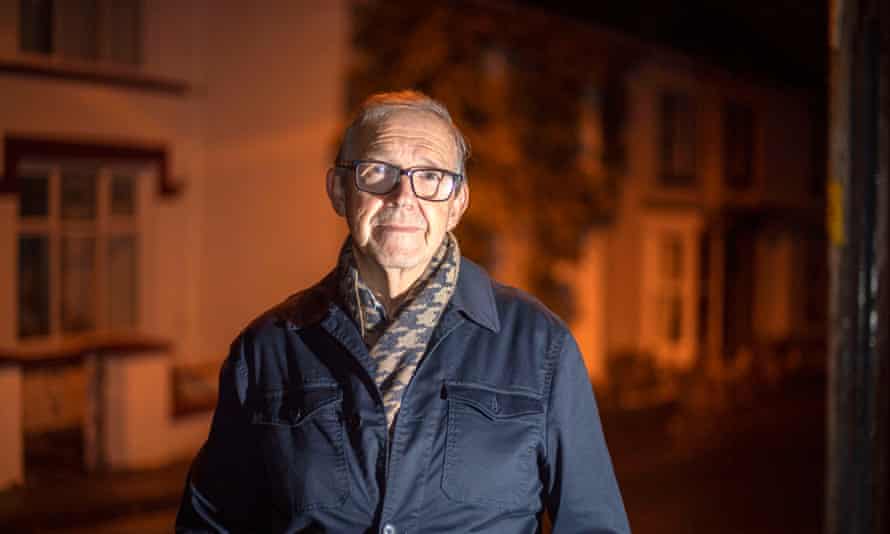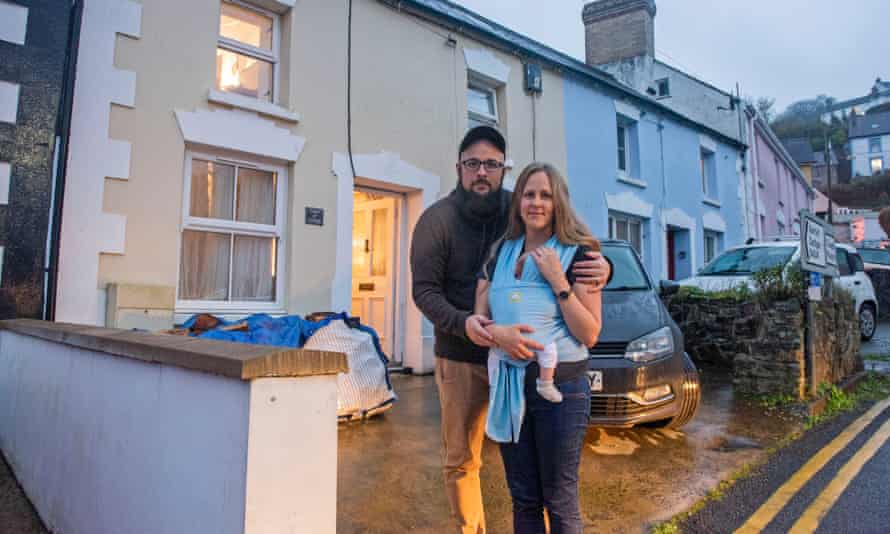The Pembrokeshire village of Llandudoch – or St Dogmaels – sits picturesquely on the banks of a gentle bend in the River Teifi and boasts a ruined abbey, cosy pubs, and good fishing spots.
But 16-year-old Minna Elster Jones has no time for its postcard looks. “I wish this place wasn’t as pretty as it is, so Instagrammable,” she said. “This is my home and the home of my ancestors. But I feel the place – and our language – is being lost, taken away from us. We’re being exploited.”
Minna is furious that the village’s pleasant aspect means that many of the homes in the village are now boltholes for rich outsiders, holiday homes or Airbnbs. “Unless I win the lottery, I wouldn’t have a chance of buying here. My culture, my ethnicity, my language is at risk.”
The delicate subject of second or holiday homes and the impact they have on the Welsh culture and language is high on the political agenda in Wales.
More than 1,000 Welsh-language campaigners protested at the Senedd, the Welsh parliament, in Cardiff at the weekend. A petition arguing that people being priced out of their local communities contravenes Wales’ showpiece Well-being of Future Generations Act has gathered more than 5,000 signatures.
On Wednesday, the Senedd’s housing committee began to take evidence for an inquiry on second homes and the Welsh government is about to announce details of its plans to tackle what it accepts is a “crisis”, including an action plan to counter the impact on the language. Figures published by the Welsh government this week found there had been a 45% increase of second homes in Pembrokeshire since 2017-18.

That means places such as Llandudoch are the frontline. Signs are appearing on residents’ gates and fences reading “second homes kill communities”, and membership of the campaign for an independent Wales, YesCymru, is growing.
“You can feel the community changing around you,” said Terwyn Tomos, a retired headteacher of the village school. At the time of the 2001 census half of the villagers spoke Welsh, but by 2011 that had decreased to 44%. Tomos said it would not surprise him if it was 40% or lower now. A cruel irony is that there is a huge interest in learning Welsh but communities where it is most spoken such as Llandudoch are being ripped apart. Tomos bemoans the struggle of culturally important groups such as the Welsh-language drama society that had to move out find an audience. “A lot of people are worried,” he said.
Jared and Michelle Brock, who have a newborn baby, have been served an eviction notice. Their landlord wants to sell their two-bedroom house in Llandudoch for the best part of £250,000 or rent it out as an Airbnb. “There’s no place for us to rent within a 30-minute drive,” said Jared.

He pointed out that there are about 4,000 people on the social housing waiting list in Pembrokeshire – almost exactly the same number of second homes. “Something has to be done.”
Ffred Ffransis, a leading member of the pressure group Cymdeithas yr Iaith Gymraeg (the Welsh Language Society), said the problem was being turbo-charged by the “flight” from cities caused by Covid, while Brexit was prompting people who might have bought second homes in France or Spain to plump for Wales instead.
Ffransis said: “All these trends have wiped out the housing market for local people in many areas and we are witnessing population shifts at a level probably never seen anywhere in peacetime. There is growing evidence that no Welsh-speaking communities will be left within a decade. It is cultural genocide by bank transfer.”
Cymdeithas yr Iaith wants the Welsh government to give local authorities more control over the housing market, such as the power to set tighter planning rules that make it harder for houses and flats to be turned into second homes and the ability to set a cap on the number of them.
Minna’s mother, Helen Elster Jones, said she found it upsetting to walk down the high street and hear much more English than Welsh. “It’s painful. I don’t want to feel angry with new people, I’m not a dragon hogging Wales, but it rankles.”








